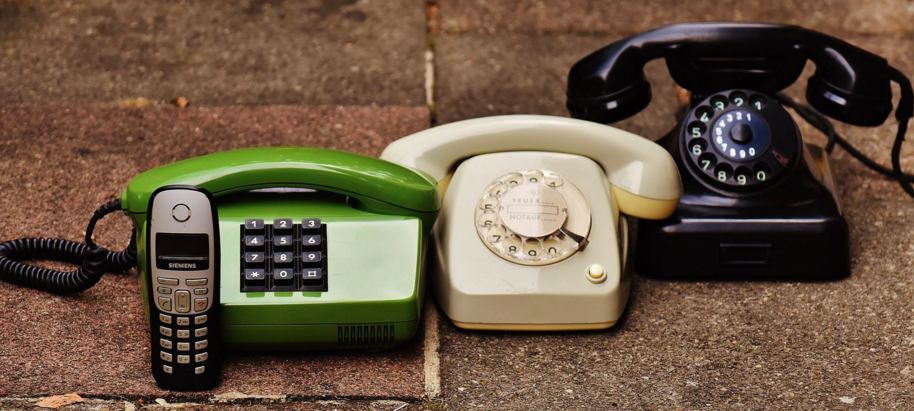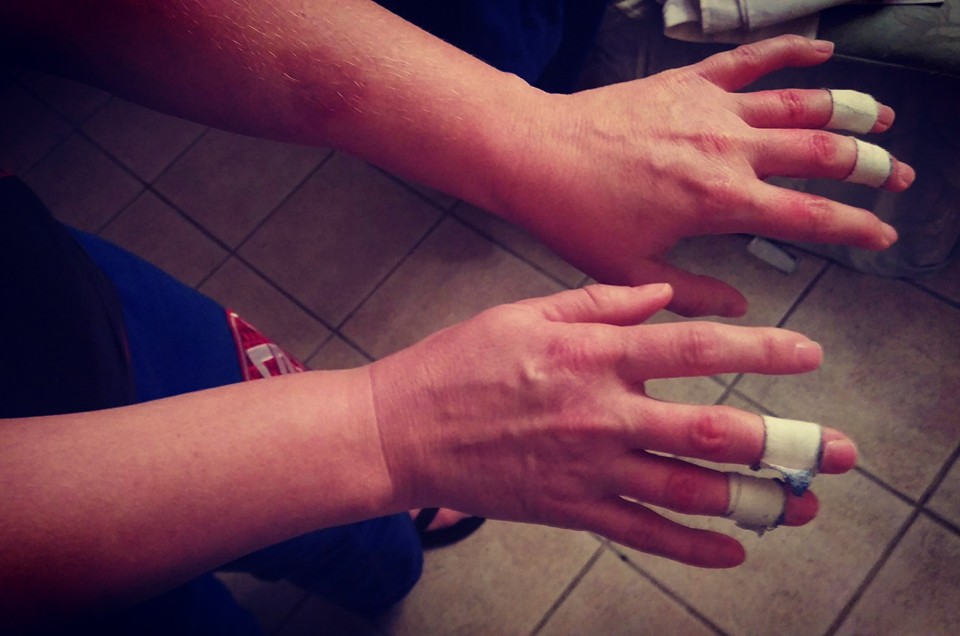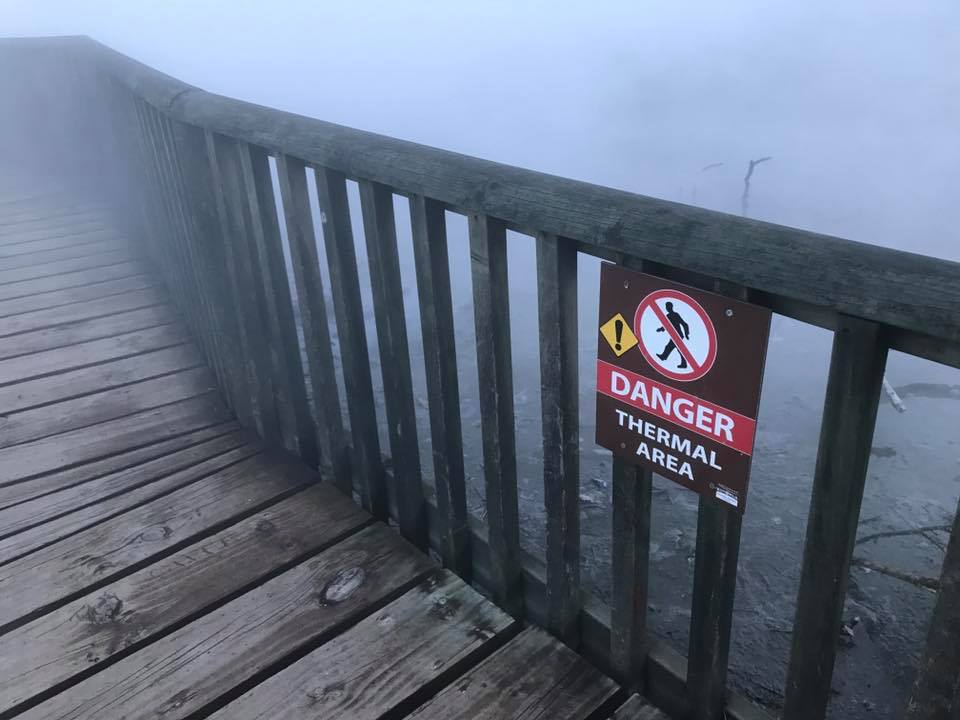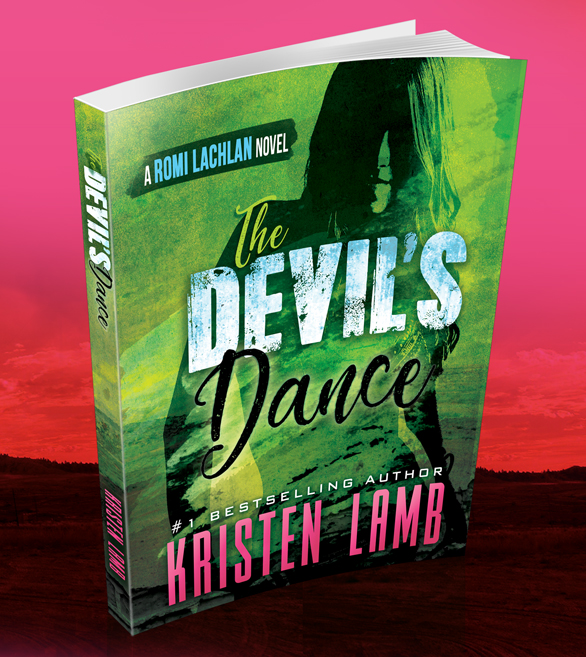
Research can be a double-edged sword. It can elevate writing to an entirely new level, but can also be a place we hide, procrastination masked as ‘work.’ Recently, I posted on the dangers of premature editing and gave tips to help keep us moving forward on that first draft until it is FINISHED.
A common place we might stall is when we reach a point we need to fact-check or research. To maintain momentum, my suggestion is to write a note and keep writing. For instance, I might be writing a story set in the jungle. It is tempting to halt, open a browser tab then spend the next three weeks researching jungles.
Problem is, the goal is to finish a novel, not to become an expert in rain forests.
Thus, what I recommend is to write the scene anyway, and, in another color or bold or all caps, type something like ADD IN COOL STUFF ABOUT JUNGLE HERE. Then? Sally forth.
Research is vital for great stories (so long as we contain it).
Research Genre Expectations

Choosing a genre is critical for success. Many emerging writers believe genre is too constricting, that it will make a work ‘formulaic,’ but nothing could be further from the truth. First, genres often have a lot of crossover.
As an example, my new novel The Devil’s Dance has ranked very well in mystery, mystery-thriller, thriller, suspense, mystery-suspense, women sleuth, pulp and even…financial.
Why ‘financial?’ My best guess is it is because a massive financial crime of Enron proportions kicks off my story. The murders that later ensue serve the BIG goal, which is motivated by money.
Genre is critical in that it helps fans find and discover our work. Readers can’t fall in love with a novel they can’t locate. Also, readers pick a certain genre for reasons. When we know these reasons, our stories can serve the consumer what she craves.
Mystery readers want a puzzle. The puzzle needs to find the sweet spot between ‘So Easy a Six-Year-Old Could Solve This’ and ‘There’s No Way Anyone Could Solve This.’ They want twists, turns, and to be surprised and even fooled.
With romance, readers want a Happily Ever After (or at least a Happily For Now). If the couple doesn’t come together at the end, this is not a romance. It’s a different genre, likely a women’s fiction.
Every genre has boundaries (here is a post to help). Knowing our boundaries helps us push them in new ways, but we can’t break rules until we know them first.
The best way to research the genre we want to write is to READ that genre. As many books as possible.
Research Audience

This dovetails into my last point about genre. When writing any story, it is essential to always keep the audience in mind. If we want to sell books and write for a living, then stories are for the readers, not for us. We can feel free to write for ourselves, but that is writing as a hobby.
Sort of like my crochet.
I love crocheting, but don’t expect any of my blankets or scarves to be for sale on Etsy. My crafting is for relaxation, not for making my living (…thank God).
When I do edits, one of the most common problems is the writer who fails to consider his/her audience. This oversight plagues virtually every genre.
If you desire to write a Regency romance, it is imperative to read A LOT of Regency and to know that time period inside and out. Social conventions, their world, how they spoke, what they valued, etc.
This holds for any form of historical fiction. These audiences are passionate about history, and very knowledgable, too. If we do our research and make sure the details are correct, fans will love us. If we don’t?
Readers will burn our novel at the…steak.
😀 *evil laugh* *all the writers scream in pain*
With mystery, thriller, crime, etc. we must appreciate that readers who buy those books watch a lot of crime shows. This audience likely has an addiction to Discovery ID, Dateline, and documentaries about forensics and all things criminal justice.
Thus, we need to understand jurisdiction, procedure, and have characters using the proper nomenclature. Know who handles what and how they talk as they work the scene.
In the U.S. at least, if dispatch notifies a beat cop about a possible DB (dead body), there is a process. Once that officer confirms there IS a body, this officer then has a limited role in what happens next (call in homicide, notify the Crime Scene Unit, cordon off area to preserve the scene and make sure evidence isn’t trampled through).
The officer will NOT do the footwork a detective does, like interviewing POIs (Persons of Interest).
We need to know this, or readers will holler FOUL.
Research Readers

This is similar to researching the audience, but with a very slight difference. For instance, if we write Middle Grade, we are selling to parents, teachers, librarians, etc. Here’s where it gets dicey. When writing for young people, we need to THINK like young people of TODAY.
I’ve edited many MG pieces and it’s from the vantage point of a middle-aged (or older) writer. Middle Grade stories are to entertain 8-12 year-olds, not relive our youth. We must appreciate children of the 21st century are tech-savvy and most don’t possess the same freedoms we did as kids.
Thus, the notion of a ten-year-old having a paper route, where she/he wakes at dawn to throw papers unsupervised is anachronistic. First, the parents would likely get a visit from Child Protective Services and secondly, newspapers are pretty much a relic.
An Example

Last Halloween, a store had all these spooky telephones on display with the laughing skulls and dancing bats. Spawn (my then seven-year-old son) had NO IDEA what these ‘telephones’ were.
At first, I was floored, then realized something crucial. My son has grown up in a world of cell phones and has never used a land line.
If we want to write Middle Grade, then we need to take into account the world of our young readers.
This is not to say our child protagonist won’t come into contact with a pay phone, a land-line, a camera with film, a typewriter, or a newspaper. They can encounter these items, but their attitude toward commonplace fixtures of our youth, would be a source of mystery and confusion for the modern child. They’d have little or even no concept that phones were not ALWAYS the go-to way to take pictures.
It would be akin to me, a child of the 80s, encountering a telegraph machine.
It is OKAY to ASK

These days we have unprecedented access to information. As mentioned earlier, one excellent way to research is to read A LOT of works in our genre. Tess Gerritsen was once a physician. Michael Connelly was an L.A. crime reporter. John Grisham was a lawyer. Their novels are excellent resources for learning.
Additionally, there are many professionals out there who are ready and willing to help writers with the details. If you’re writing a thriller and the character uses a gun, learn about guns. Ask someone in the know.
I once threw a book across the room because the writer’s protagonist ‘put the safety’ on her revolver. I’m from a military family, and married to a man who was a competitive shooter for the Air Force. I’m that annoying person who counts shots fired in movies (which is why I detest most action movies).
Wow, I want a magic magazine that never runs out of ammo.
I’ve also studied martial arts since I was a kid. I was testing for a brown belt in traditional Jiu Jitsu when life got in the way and I stopped. Later, I changed to Brazilian Jiu Jitsu (ground-fighting) and am an upper belt with over two years training.
Why does this matter?
First, I know what women can and cannot do in a fight. Secondly, I also know that being in a fight SUCKS (which is why I avoid them). Punching someone HURTS. Being punched hurts, too. This makes me REALLY picky about fight scenes.
I grow weary of delicate females throwing punches like Mike Tyson and never having to ice down a hand that would swell the size of a small melon (likely due to broken bones). Badass heroines who kick and punch and take down men twice their size…and never break a nail?
Uh huh. Sure.
Just to train I had to tape finger joints to prevent dislocations.

Nice swollen hands after a night at Jiu Jitsu.
Again, if we are unsure about something? ASK. Social media is wonderful for locating an expert. Ages ago, I was editing a military thriller. The author had her hero pulling another soldier out of a Humvee that was ablaze.
Problem was, there was no way this would’ve been possible.
At the time her story was set, the uniforms had WAY too much synthetic fiber, and her hero would have lit up like a human torch. In fact, the uniforms were so flammable, the U.S. military finally had to reissue all new uniforms because the old ones were a hazard.
How did I know this? I vaguely recalled this uniform change with Hubby (since I had to wash them). To be certain, I went to military friends on Facebook then Hubby to confirm this detail.
I stopped and ASKED. There is no shame in not knowing something. Seriously.
Military people read military books and maybe this detail was silly, but it very well could have been a deal-breaker.
Why risk it if a question can save the grief?
Research Adds Depth and Dimension

On one hand, the devil is in the details. Readers will judge us on accuracy. On the other hand, when we do our research and get the details right, readers will LOVE us for it. We shouldn’t feel pressure to hose readers with factoids. Remember, readers want to enjoy a story, not something that reads like an encyclopedia.
Yet, if we immerse ourselves in the facts, we’ll have a treasure trove of details to select from. The right detail in the right place can transform the mediocre to the magnificent.
Additionally, research helps our characters come to life. Who we are (profession) colors our world, what we notice or don’t.
Put a CIA operative in a restaurant, and the agent would notice points of ingress and egress. A chef would notice the wilted watercress, the shoddy plating, and the tiny chip in the water glass. An architect might note the design of the room, structural flaws, or possibly admire the wainscoting and use of natural light.
Profession, age, socioeconomic status, education level, gender, etc. all factor into character and what that character would notice or pass over completely. What would they prioritize? A teenager would prioritize wifi access over the cost of the hotel room (parents).
Y’all get the gist.
Research Setting

Rotorua New Zealand, and YES it smells of sulfur. I KNOW this NOW.
A major way we can hook readers into our story is with the worlds we create. Part of showing, not telling involves using setting as more than a backdrop. If our character is in prison, then what kind of prison is it?
What kind of farm? Which city? What part of the country?
What are smells, sounds, routines, textures? A supermax prison will be vastly different from a county lockup, just as a family-owned bed and breakfast won’t share much in common with a major hotel chain. The five senses of a character are woven into setting (or at least should be).
In the end, details add layers and dimension to characters, and help bring them to life. The better our research, the more nuance we have on hand to add depth to our stories.
If you need outside eyes to see if you’re using your detail for max effect, I have a couple slots left in my Write Stuff Special (detailed content edit 20 pages for $55).
What Are Your Thoughts?
Does this help you see research in a new way? Do you go nuts when a writer or Hollywood botches a detail that should be something simple? Do you fall in love with writers who’ve taken time to do the hard homework? I know I do.
What detail bumbles make you cray-cray? My mom is a nurse so we have to hide any medical shows. Hubby? No military movies. Me? Action movies give me hives.
I love hearing from you!
And am not above bribery!
What do you WIN? For the month of April, for everyone who leaves a comment, I will put your name in a hat. If you comment and link back to my blog on your blog, you get your name in the hat twice. What do you win? The unvarnished truth from yours truly. I will pick a winner once a month and it will be a critique of the first 20 pages of your novel, or your query letter, or your synopsis (5 pages or less).
Have to write a query letter or synopsis? Conference season is coming! THIS WEEK!
Pitch Perfect: Crafting a Query & Synopsis Agents Will Love. Class is May 3rd 7-9 EST and $45 for over two hours training y’all how to do the toughest parts of this job.
Ready for Book Beast Mode? I Live to Serve…Up Some TRAINING!
For anyone who longs to accelerate their plot skills, I recommend:
ON DEMAND Plot Boss: Writing Novels Readers Want to BUY.
Two hours of intensive plot training from MOI…delivered right to your computer to watch as much as you like 😀 .
The Art of Character is also now available for ON DEMAND.
And if you’re ready for BOOK BEAST MODE and like saving some cash, you can get BOTH Plot Boss and Art of Character in the…
Story Boss Bundle (ON DEMAND).
Almost FIVE HOURS with me, in your home…lecturing you. It’ll be FUN!
I also hope you’ll pick up a copy of my debut novel The Devil’s Dance.









30 comments
3 pings
Skip to comment form
“I grow weary of delicate females throwing punches like Mike Tyson and never having to ice down a hand that would swell the size of a small melon (likely due to broken bones). Badass heroines who kick and punch and take down men twice their size…and never break a nail?” << this is one of my very few pet peeves. As I have written here and there, in an effort to make women seem as strong as men, books and movies created things that just make you roll your eyes and feel disgusted. Women can outmaneuver men, but it takes some thought and effort to make it right.
Did you mean stake instead of steak?
Author
It was a joke, ergo the smiley face 😛
I have so freaking many details that can take me out of a good story. Watching Despicable Me 2 the other day, I seriously considered in the opening scene whether a science facility in the Arctic would, even if you HAD a big enough electromagnet, contain a sufficient amount of magnetically chargeable metal to lift off its moorings and rise several thousand feet into the air. I’m pretty sure the answer is no. ?
Thanks so much for all your helpful advice. I love your blog.
Are you also on Instagram? I would like to follow you there if you are.
Author
I am. KristenLambTX but I am not very interesting there, LOL. I can only do so many things WELL. LOL.
Thanks for this post, Kristen. It will now serve me when trying to explain that settings DO matter! Too often, I edit books with settings that are at the extremes (sparse or super-dramatic) and do nothing to support the story or the characters romping about.
I get the thing about BANG (times 45) in movies. I spent years in 9-1-1 crisis mgmt/response and hate when a character transmits over a radio like talking on a cell phone — and end those transmissions with ‘thank you’!! Protocol knowledge can do a lot for a scene, and a book.
I’m learning to use the old [RESEARCH JUNGLE] trick. It’s hard, ’cause I always want to look it up. You know, set the mood in my brain as well. But it is way to easy to get lost in research.
“too” easy ?
I totally agree that research can become a black hole, but alas, to me, it is every bit as fun as writing, so I’ve yet to achieve a balance. The majority of time I go to look something up, which leads me to another article, which leads me to another article, which then makes me ask “I wonder how so and so blah blah blah,” and off I go bunny-hopping again. 😎
Sometimes it does work for me to insert a “research this” note and keep writing. Other times that missing piece of research pulls me like a magnet till I go find it.
But I know the burden is on me to produce–or not–my fiction. Maybe one day I’ll hate research and it’ll go faster. 😎
If the overall story “feels right” for the research, it doesn’t bother me if the story mixes up some of the smaller details. “Feels right” goes a long ways. There should always be a smell test on some of the details to see if they are really worth tracking down. Like a writer who was trying track down an obscure architectural detail that most people wouldn’t know or care about. It isn’t a good use of time to track down every fact. But if I had to track something down, I’d go for what it smelled like.
I used to LOATHE research for any kind of fiction because many writers approach it from the position of fear. Fear they will get a detail wrong and get called out. Or thinking they’re in college getting graded on a term paper. But I took a class on research for fiction writers that veered away from the common thinking of doing it like a term paper. It really changed how I thought about research, so much that I might one day write a historical novel…something I thought I would never do.
I think it’s a huge mark of either a beginner writer or one who is just lazy. There are so many little things that set off my nerd-dar. The saddest part is that there are a number of books I remember their error and little else.
As usual, very good information. Research is so important, it can keep readers from laughing when you mistakenly have your military hero survive an exploding IUD. 🙂
Author
BWA HA HA HA HA HA….that’s funny.
OMG, hilarious.
My sweet mother-in-law once asked everyone in her church prayer circle to pray for me because I’d gotten pregnant even though I had a “DUI.” Oy.
The revolver was setting on her desk, in pieces. She reassembled it, put on the safety and walked out the door.
Better be a Webley-Fosberry, but what do I know?
First of all, guilty as charged. I’m a historian and I LOVE research. Before I wrote my first book, I studied the Storyville area of New Orleans from 1897-1917. It’s a cool place, all the prostitutes in one eight-block area just outside the Quarter. I decided to write the book and then I got the hair-brained idea to put REAL people in it. There’s real people from the census and even a thesis in there. All but 3 people in the first 2 chapters of the first book were really living in that time and place doing those things.
The other fun piece of research was when I put on my Facebook “Uh, guys, I may have to ask for bail money. I’m going to be going to the police department to talk to the bomb squad guys about how to blow up a building.”
That panicked one of my friends who was in the military and did ordinance/bomb stuff. He popped onto instant message and said “What the hell are you doing?” I explained that I was blowing up a building in this next book (the 4th one, out last August) and I needed to know what to use, how to get the effect I needed, how far the blast range would be if I took out x amount of floors in the building, and what the cops would do. Papa Joe gave me all this info without me having to scare the life out of the Houston Bomb Squad. He changed a couple of details to keep someone from replicating the real effect. So I blew up a 25-story building that both me and my husband used to work at (and got laid off in).
So, yeah. Research is important but so is keeping your eye on the fiction part of the story and not get so wrapped up in the details.
The 5th book in the series that I’m writing now, we’re going to Russia. Yes, I am picking a real place again. 😀
I hate stories which have supposedly historical people acting like 21st century people. Case in point (I’m sure I’ve ranted about this before…) the recentish Pride & Prejudice movie which (spoilers!) had Elizabeth and Darcy kissing in a field at dawn in a state of partial undress. That’s not romance in the Regency, that’s Lydia Bennett Mark II – a woman who has to marry a man pretty damn quick as her reputation has just gone down the… privy.
Equally awful are the stories where only the hero/ine acts like a modern person, because they’re a much more evolved human being than everyone else – and we all know being the main character magically gives you awareness and the ability to question any part of your culture that 21st century Westerners would be uncomfortable with. Augh!
This is why I stick to writing Fantasy…You can get away with a lot in Fantasy. Of course you do have to create your own world and its rules and then have everyone stick to them, which is a kind of research.
I researched how the Celtic people built their roundhouses for my novel set in Roman Britain and found a fascinating Vide of some people recreating it. I also learned a lot about the Roman Army. All most interesting. I must, though, try to use the RESEARCH JUNGLE technique as so often I stopped writing to do the research. I think it’s a ‘legitimate ‘ way of procrastinating.?
While I was browsing on Reddit, I came across a very neat-o tip. Whenever I am writing, and come across a certain thing that would distract me to open a new tab or get up and go all the way to my room and grab another book for reference, I put “[]” and put whatever I need to research in the brackets, usually using the highlighter in Google Docs so I can reference later.
The secret to adding research material to your book is to make it seamless with the story. There’s nothing worse as a reader to have the writer step into the story with “look what I found out about X, and here’s some more about it, and more.”
Be invisible, writers.
I hate research, but I know it’s necessary. I recently contacted a friend of mine who spent his life in the Marines to get some details right. I’m always amazed–though I shouldn’t be–how much this brings the scene to life.
How do you balance writing and bjj? As an evening writer, I find grappling seems to mentally wipe me out for the remainder of the day. I basically have to do one or the other and never both :/
Author
I write early morning and would do BJJ in the evening. Helped a lot with tendonitis from writing. I miss it a lot. I dislocated my knee and have been rehabilitating that, so no grappling for me 🙁 .
I count bullets too!! Although I have relatively zilch knowledge of guns, one tends to notice an infinite supply of ammo…
I think your idea of putting in a comment (INSERT DETAILS HERE) and research later would be a great tool to avoid procrastination (who am I kidding). Now I can just focus on the regular procrastination, that is to say… my actual draft. (Meep!)
Alison… I like your idea of inserting a comment to oneself to prompt research, or even just as a reminder to check details with a phone call.
It’s amazing how helpful people and organisations are when you tell them you’re a novelist checking details and facts. Even when it comes to security measures, maintenance schedules (I asked about the ‘down times’ on the Channel Tunnel shuttles during the night – I could have been planning to plant a bomb) and police station prisoner holding facilities and interview rooms… I once got given a guided tour around a ‘massage parlour’ (in effect, a brothel) to get details right for scenes in one of my novels. The staff were great at filling in those little details that only the girls would know (See the opening… on Amazon’s ‘Look inside’ feature… to ‘Transactions’ https://www.amazon.co.uk/Transactions-special-selection-assorted-Friends-ebook/dp/B00ZCPELNU?tag=gevert08-21).
I write crime fiction, and like you, I too count bullets on TV etc. as well as in my own novels. Fortunately, writing British crime, gunfire is less prevalent, as it is in real police life here (few UK policemen carry firearms… and consequently villains are less inclined to either, as carrying can seriously increase sentences when convicted.) When I do feature guns, their use is important to the plot, and as such, the details have to be correct (including their availability to the person using them… You can’t just buy a handgun over the counter here, in fact handguns are not allowed at all for civilians, so research needs carrying out about illicit suppliers and what’s available.).
I’ve always believed that if you get the facts right, the reader will believe the fiction.
I know a writer who writes alternative history and fantasy (one way he uses his doctorate in Byzantine history to good effect) but worried greatly when writing an alternate US Civil War story, because people out there notice when the wrong *button* is being worn. He discovered cool things like his characters couldn’t go see Confederate officials on a certain day, because in history…it was closed for Washington’s birthday. (and then used it to make the scene work even better, because he’s like that). As for SF, you had better know *some* science or at least not get your science wrong, because Nobel Laureates may well be reading your work and laughing their fool heads off.
I love researching, I can get stuck in for hours if I’m not careful. I’m adamant about not placing my fantasy story in yet another medieval setting, so instead, it’s a mix of ancient Egyptian, ancient Greece, Roman, and other civilizations. It depends on what’s needed. Buildings I like to go for tall pillars made of barbel in the larger cities, the small towns get thacked mudbrick huts, inside houses and such there are no chairs just benches maybe a table, shelves, and reed mats. Not much of what I research gets used. It’s kind of funny that research can take an hour or more to find two-three words. a ‘padded bench’ lol even worse for clothing for kids wayyyy back when? A loincloth or they usually went around naked. I really want to do something different. I’ve so many fantasy books that I’ve lost count and am sick to death of medieval anything.
[…] Research Matters: The Devil is Always in the Details […]
[…] https://authorkristenlamb.com/2018/04/research-matters-details-fiction/ “A common place we might stall is when we reach a point we need to fact-check or research. To maintain momentum, my suggestion is to write a note and keep writing. For instance, I might be writing a story set in the jungle. It is tempting to halt, open a browser tab then spend the next three weeks researching jungles.” This is what I do. I do allow some research ahead of writing but then only fact-check after the second draft. […]
[…] Research MATTERS. Granted, some genres require more research than others. Cupcake Cozy vs. Epic Historical. Totally different levels of research, but might want to know a little about baking even for the cozy. […]